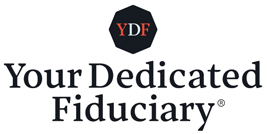
One of the head-scratching observations I made during my former career as an investment consultant to leading financial advisors is how few advisors ask for their clients’ tax returns to use as the basis for their planning. Ostensibly, it’s because advisors and firms don’t want room for clients to (mis)perceive that an advisor is qualified to advise on taxes because they don’t want the liability. The reality is that a qualified financial planner really needs to understand the tax profile to provide the most prudent advice and implement your plan with tax efficiency at front of mind. Let’s review some common examples.
A) Do you have a frustrating tax bill every year due to capital gains?
Has your CPA pointed out the capital gains showing up on your tax returns? There may be tax loss harvesting opportunities to reallocate those assets and reduce your capital gains taxes, which may in turn drop you into a lower overall tax bracket. You may want to ask your current or prospective advisor to structure a tax-efficient non-retirement portfolio (investments made with after-tax money) from the start to help reduce the capital gains drag on the non-retirement portfolio.
B) Are you aware of tax bracket management?
When you turn 70.5 years-old, you’re required to take required minimum distributions (a.k.a. “RMDs”). If you have charitable intent and are close to the next lower tax bracket, you may consider donating enough of your RMD to get you into the next lower tax bracket, which is part of the broader strategy called tax bracket management.

C) Do you have a tax-efficient charitable giving strategy?
Do you donate to your favorite charities by check – even “small” amounts of, say, $1,000 to $5,000 per year? Do you also have highly appreciated mutual funds or stocks that you own in a non-retirement account? If so, there may be more tax-efficient ways of satisfying your charitable giving, such as:
1) donating the appreciated positions directly to the charity, or
2) establishing a Donor-Advised Fund. In both cases, you get a dollar-for-dollar deduction of up to 30% of your Adjusted Gross Income (“AGI”), whereas with cash donations you may only deduct 60% of your contribution.
Unfortunately, investors often sell the appreciated positions to then donate the cash, thus triggering a capital gains tax bill and leaving less net money from the original position to donate to charity. These investors either don’t hire a financial or tax advisor, or their advisors aren’t familiar with these strategies and don’t think to advise the client on them. You can avoid creating a capital gains tax bill by donating the appreciated positions. With a Donor-Advised Fund, you can also fund (and deduct) your future years of charitable intent in the current year, which may be smart to do if you have a higher than normal taxable income in the current year.
If your contribution exceeds 30% of your AGI, you can carry forward the deduction for up to 5 years. Disclaimer: you should consult a qualified tax professional before implementing either of these strategies.
Think about the tax efficiency here: if you donate a stock that is currently worth $100 per share, but that stock cost you $10 per share when you bought it, your cost basis is significantly lower than the current value of the position. When you donate this position, you get to deduct the current price per share of $100, even though the position only cost you $10 per share – and you pay no capital gains tax on the sale. Yes, Virginia, there is a Santa Claus.
If your current or prospective advisor is not using your tax returns for the basis of your planning, it may be time to consider hiring a more qualified advisor. There is a vast difference between an advisor asking for tax returns for document retention purposes versus specifically using the returns as the foundation for your planning – it could benefit you greatly to be mindful of the difference.
Vance Barse is a wealth strategist for high net worth individuals, families, and business owners. Previously, for nearly a decade, he was an investment consultant to leading private wealth and retail financial advisors around the country. In that role, he managed relationships with advisors, RIAs, and family offices. Sign up for Vance’s blog updates at vancebarse.com.
D. Vance Barse (CA Insurance #0L70885) is a registered representative and investment adviser representative with and offers securities and advisory services through Commonwealth Financial Network®, A Registered Investment Adviser, member FINRA/SIPC. Manning Wealth Management is a Registered Investment Adviser.
